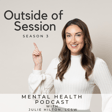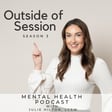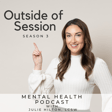
Silence the Shame: A Conversation on Domestic Violence Awareness
In this powerful episode, we shed light on the crucial issue of domestic violence and intimate partner violence. Join us for a heartfelt conversation as we sit down with expert and advocate, Chae Gardenhire, to discuss the impact of domestic violence on individuals and communities. Gain valuable insights into recognizing signs, offering support, and fostering a culture of empathy and empowerment. This episode aims to raise awareness, inspire change, and provide resources for those affected by domestic violence.
About today's guest:
Chae Gardenhire is a Licensed Clinical Social Worker and therapist in the metro Atlanta area and owner of Balancing Thoughts Counseling Services. Chae is married to her husband Marvin and they are a blended family of 5 children (and one fur baby). Chae has a passion to assist individuals and couples in navigating life transitions, while working on their healing and improving their mental wellbeing.
Resources:
https://ywcaspokane.org/programs/help-with-domestic-violence/power-and-control-wheel/
https://ywcaspokane.org/wp-content/uploads/2017/10/2018-YWCA-Spokane-Power-and-Control-Wheel.pdf
Get in touch with Chae:
https://www.therapyden.com/therapist/chae-gardenhire
chae@balancingthoughtscounseling.com




